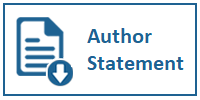Satire In The Making Rhetorical Analysis Of Habieb Rizieq Menjawab' Facebook Fan Page
DOI:
https://doi.org/10.31937/ultimacomm.v6i2.416Abstract
Religious extremism is one of the major problems for Indonesia in the post-Soeharto era. The freedom that Indonesian people enjoyed after years of dictatorship by Soeharto also became a fertile ground for the idea of religious intolerances. Many effort are done by NGO's, government, and also religious institution to promote the moderate view to counter this intolerances. But with the rise of social media, Habieb Rizieq Menjawab (HRM) Facebook Fan page”with more than 70 thousand followers, making it one of the most followed for religious affiliated figure” which is a parody of one of the famous hardline religious organization with the same name, stands out, because it is arguably the first of its kind in Indonesian social media landscape (Lakshmi, 2012) With around 69 million active users in 2014 (Purnell, 2014), making it the fourth largest country with Facebook user in the world, it's hard to not look the important role this social media can play in Indonesia society. HRM becomes a unique and novel way for Indonesians to promote moderation and to counter the intolerances view. Satire itself has a long a history as tools to voice a counter view. Goodall, H., Cheong, P., Fleischer, K., & Corman, S., (2012) show that this kind of communication has been used, for example, since the pre-Islamic Arab through Second World War. Most recent examples can be seen in the Middle East. Countries such Egypt and Syria, which have been known for their use of literature, art, and humor as tools of political protest, seen a more flourished and fertile ground for a more mature comedic art forms, such as the ever-present political cartoon (Leila, 2012). This study will examine the usage of HRM Facebook Fan page, including status updates and image postings, seen with the perspective of critical theory of satire (Griffin, 1994) as a way to offer a counter-narrative, and an intervention to violent extremist narrative (Ashour, 2010) and Shetret (2011). The methodology to do it will be using the Rhetorical Analysis, with focus on Metaphorical Approach (Foss, 2009), This study hopes to examine how satire and social media can become a tool to fight the spread of religious intolerant ideas. It is also hoped that this study can serve as a base for further study on this topic.
Keywords: Satire, Facebook, Rhetorical Analysis, Religious Intolerances, Counter Narrative
Downloads
Downloads
Published
How to Cite
Issue
Section
License
Ultimacomm Jurnal Ilmu Komunikasi allows readers to read, download, copy, distribute, print, search, or link to its articles' full texts and allows readers to use them for any other lawful purpose. The journal allows the author(s) to hold the copyright without restrictions. Finally, the journal allows the author(s) to retain publishing rights without restrictions
1. Authors are allowed to archive their submitted article in an open access repository
2. Authors are allowed to archive the final published article in an open access repository with an acknowledgment of its initial publication in this journal














